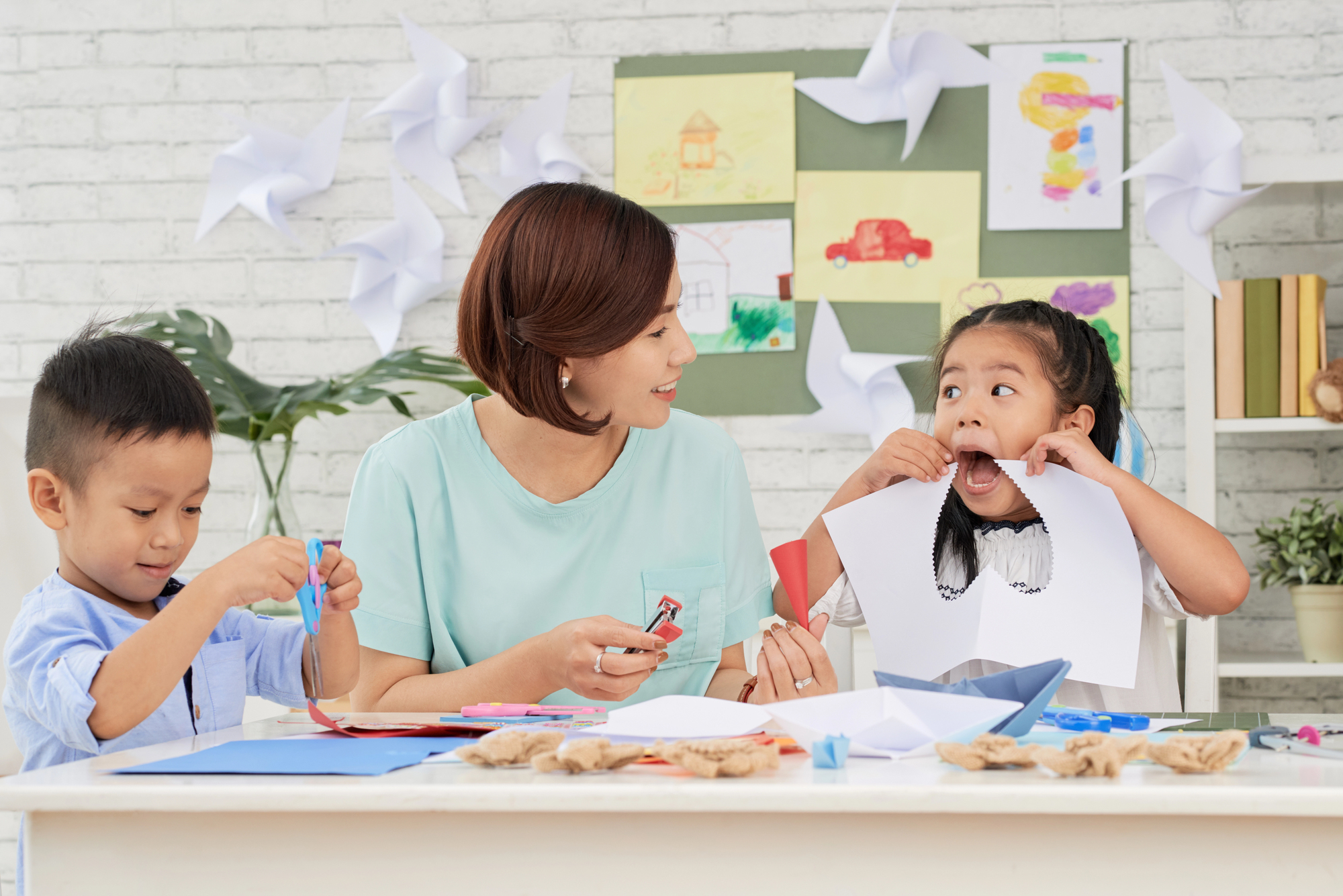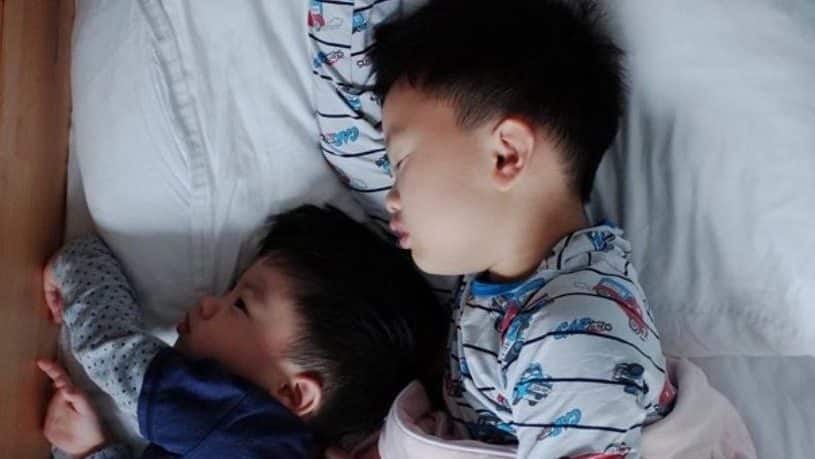“God is good even in the midst of suffering”: Singer-songwriter Ethel Yap who battled postpartum anxiety
Trigger warning: This article contains mentions of self-harm.
by Gracia Chiang // October 10, 2024, 1:35 pm

Grateful for the unwavering support and loving acts of service from her husband, Ronald, throughout her mental health struggles, Ethel said that also gave her the space to heal. All photos courtesy of Ethel Yap unless otherwise stated.
Something so wonderful shouldn’t be so hard.
Penning these lyrics, local artiste Ethel Yap never imagined that she would one day be writing a song about her journey with postpartum anxiety.
In fact, while in the throes of her mental illness, the singer-songwriter and theatre actress even thought that she might never be able to perform again.
“I was so strung out from my condition that I was very creatively barren for a long time. Nothing was coming to me. No words, no music. I was just surviving,” revealed the 36-year-old.
The year was 2020. While Singapore was struggling against the challenges wrought by Covid-19, Ethel too was fighting her own battle.
“The first six months were very torturous.”
Four nights after giving birth to her first child, her excitement and joy quickly turned into distress and despair.
Whenever Ethel tried to rest as her baby slept, she would feel a tightness in her chest. Then came the violent awakenings, heart palpitations and breathing difficulties.
Troubled by these symptoms she had never experienced before and tired from the lack of sleep, she saw a doctor at the hospital.
While tests on her heart and lungs came back fine, she was subsequently diagnosed as having postpartum anxiety.
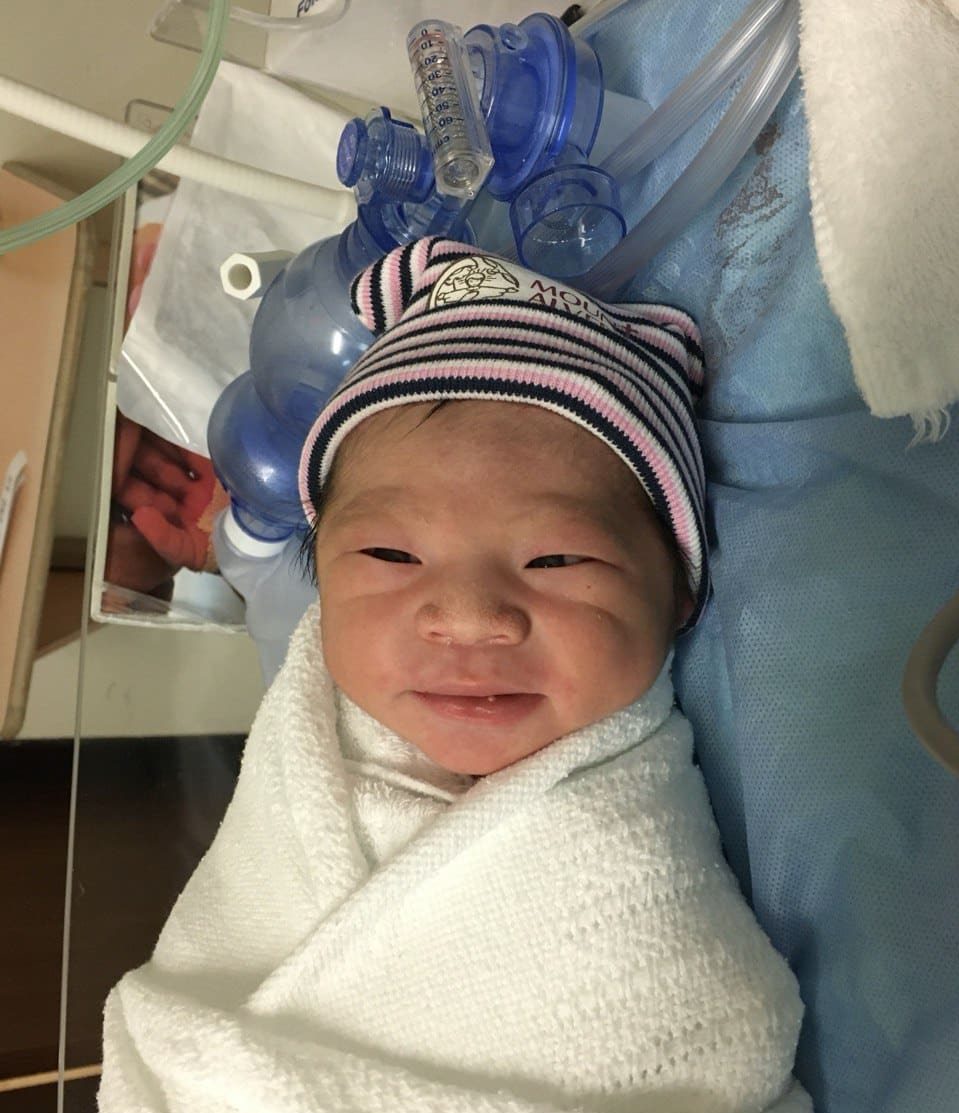
Despite giving birth to a healthy child and having good support, Ethel could not understand why she felt like her world was crashing.
“The first six months were very torturous. My insomnia was still very bad, and I didn’t find that (the medication) was particularly effective,” said Ethel.
She was prescribed breastfeeding-friendly medicine to take as needed, but somehow could not find relief.
“Throughout the day, I just felt like I could not settle down. There was this constant unease and discomfort; I was feeling very on edge. And at night, I could not sleep at all.”
Armed with a strong desire to breastfeed, Ethel added that she was hesitant to ask for stronger medicine out of worry that it would leak into her breastmilk.
“I thought, ‘I’m just going to tahan (endure).'”
Will things ever get better?
Between the first six months and one-year mark, Ethel noticed a slight improvement in how she felt, but described the state of affairs as still being “very up and down”.
“There were moments – weeks – where I felt like, ‘Oh, I’m a bit more at ease, I feel more like myself again, I’m starting to find joy in things. Maybe I’m getting better.’
“And then there were other weeks where, without warning, suddenly the insomnia would just come back in full force again.
“There was no discernible pattern – nothing that I could really hold on to show me that there was linear progression.”
“It made me realise that I really needed to get some serious help.”
Then when her son turned one, Ethel had a very bad relapse that was triggered by the stress of organising his first birthday celebrations.
Due to Covid-19 restrictions on social gathering group sizes, she ended up having to plan for a whole series of smaller events.
“For five nights, I could not sleep at all – not a wink. And at the end of the week, I started to have self-harm ideation and it was very bad.”
Plagued by vivid thoughts of self-harm for the first time, she recalled: “It was a bit of a shock to me and made me realise that I really needed to get some serious help.”

Although Ethel was diagnosed with postpartum anxiety, there were many moments where she also felt depressed.
Going back to her psychiatrist, Ethel finally asked for stronger medication. Additionally, she decided to go for counselling again.
While Ethel had been introduced to a counsellor at the hospital in the initial postpartum months, she did not continue after a few sessions.
“I just felt it wasn’t very effective. I don’t know whether it was me or the counsellor. Sometimes it’s just not a good fit and it’s no one’s fault.”
This time round, Ethel decided to seek out a different therapist.
Sharing that the first counsellor she was referred to was also not a good fit, it was only on her second try that she found someone who made her feel “seen”.
“I was like, ‘Yes, you get me!'” said Ethel.
Finding the help and the hope that she needed, Ethel shared that her therapist validated her feelings, reframed her thoughts and gave her strategies on how to manage them.
“Thankfully once I was on a stronger medication, I could sleep better. After I saw (my current) counsellor back to back for a few weeks, interestingly my condition also improved quite quickly.”
But even though Ethel started to see signs of recovery, she was not out of the woods yet.
Feeling trapped
As the primary caregiver to a growing and active toddler, Ethel continued to grapple with her mental and emotional health.
“We didn’t want to put him in infantcare; we tried to keep him at home until 18 months, so I was the one who was mainly at home with him.”
Observing that her son started to need fewer naps and a lot more engagement after he turned one, she said: “His development required a lot more out of me. In the meantime, I was still recovering, so I started to get very emotionally drained.
“That kind of triggered again another set of depressive symptoms. I was feeling very trapped and very suffocated, and I didn’t have any time for myself.”

Being a stay-home mum continued to take a toll on Ethel, until the time her son could go to childcare.
From the outside, most people probably did not realise she was unwell, confessed Ethel.
“I was able to care for my son, to do all the daily tasks of being a stay-home mum and caring for a baby,” she said. “But because of the insomnia I was perpetually exhausted.”
On the inside, Ethel was also crumbling.
“I felt very hollow, like a shell of my former self. I would look into the mirror and be like, ‘Who is that?’ It was very dissonant.”
Once a cheerful and optimistic person whom others would describe as “bubbly”, she could no longer recognise herself.
“I felt like a zombie, dragging myself through all the things that I had to do every day. I just felt like I was not present and not inside myself. I was very fragmented.”
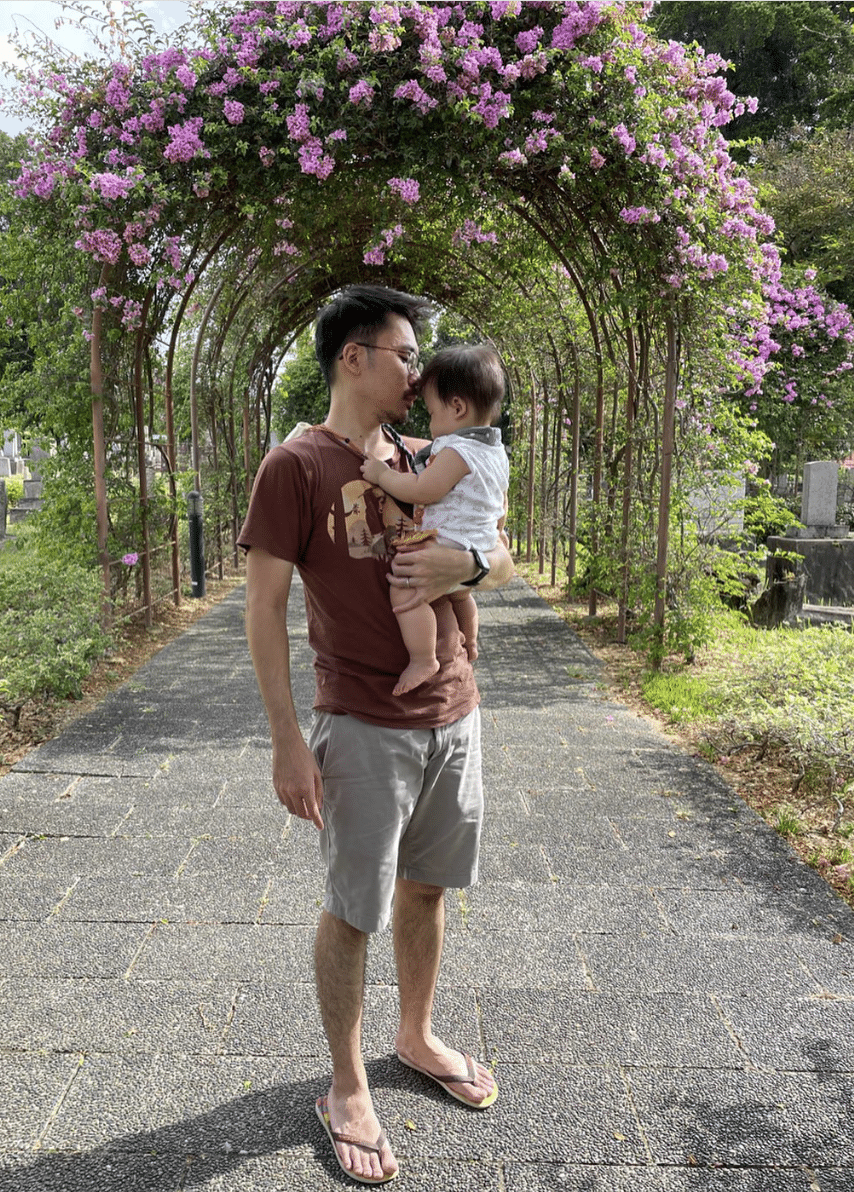
Due to her pumping schedule and postpartum anxiety, her husband had plenty of opportunities to bond with her son. As a result, he was the preferred parent in the first year.
Her struggles also affected the relationship with her son.
“I knew I loved him very deeply, and there were many genuine moments of warmth, affection, love and joy being with him,” said Ethel.
“But simultaneously there could also be, ‘I want to get out of here. I can’t breathe; give me some space.'”
Confused by these conflicting emotions, she added: “I would swing between feeling, ‘I’m really enjoying him’ and ‘I’m not enjoying him at all’, and swing between, ‘Oh my gosh, I love you so much, you’re so sweet’ and ‘ I wonder what I’ll be doing if I didn’t have a baby.'”
Things only turned the corner after he went to school, Ethel noted. “I had a bit of space from him. I had some of my own time back.”
With her schedule freed up, Ethel rested and recuperated, until her next work engagement came in the form of a theatre play when her son was around two years old.

Ethel has since returned to the stage, starring in projects such as Broadway musicals Into the Woods (pictured) and Dear Evan Hansen. Photo credit: CRISPI/Pangdemonium
Celebrating her progress, Ethel acknowledged that she was in a bad place for a long time.
“I just kept feeling like, ‘Wow, I would never return to performing because I felt like a stranger to myself,'” she recounted.
“I couldn’t imagine ever standing on stage again. I couldn’t imagine feeling remotely functional, or being in an emotionally or mentally healthy enough place to ever perform again.
“I was starting to feel that maybe I had to give it up. That broke my heart because I love it so much.”
But as she had the time to process what she experienced and her counsellor helped her to recognise that opportunities to be on stage were a chance for re-integration, healing started to come.
Her monthly visits to the psychiatrist have also been reduced to once every six months or so.
Her source of hope
Reflecting on her entire journey, Ethel said she has also grown a lot in her faith as a child of God.
For instance, when she was struggling with breastfeeding and assailed by accusatory thoughts, turning to the Bible brought much encouragement.
- God created your body to be able to feed your child and you can’t even do it. That’s a failure.
- You’re not obeying God because He made your body to be able to do this, but you’re not doing it.
- You’re lazy; you don’t want to persist in latching because you just want your own comfort. You’re a selfish mother.
- If you were living in the ancient past, breast pumps and formula were not even invented. It’s only because you’re living in a modern era that your baby is still alive.
“I was drowning in these thoughts, so I thought I would sit down and find promises in God’s Word.”
Taking time to journal, she drew comfort from verses such as Hebrews 4:14-16 and Romans 8:28.
Psalm 145 also spoke to her deeply, especially verse 15.
“The eyes of all look to you, and you give them their food at the proper time.”
“I really felt God was telling me, ‘Don’t worry, I am feeding your child. I am making sure that he is fed,” she said.
“And in that moment, I felt that God was lifting all the judgement that I had placed on myself. He was reminding me that at the end of day, He is the ultimate provider for all of our needs.”
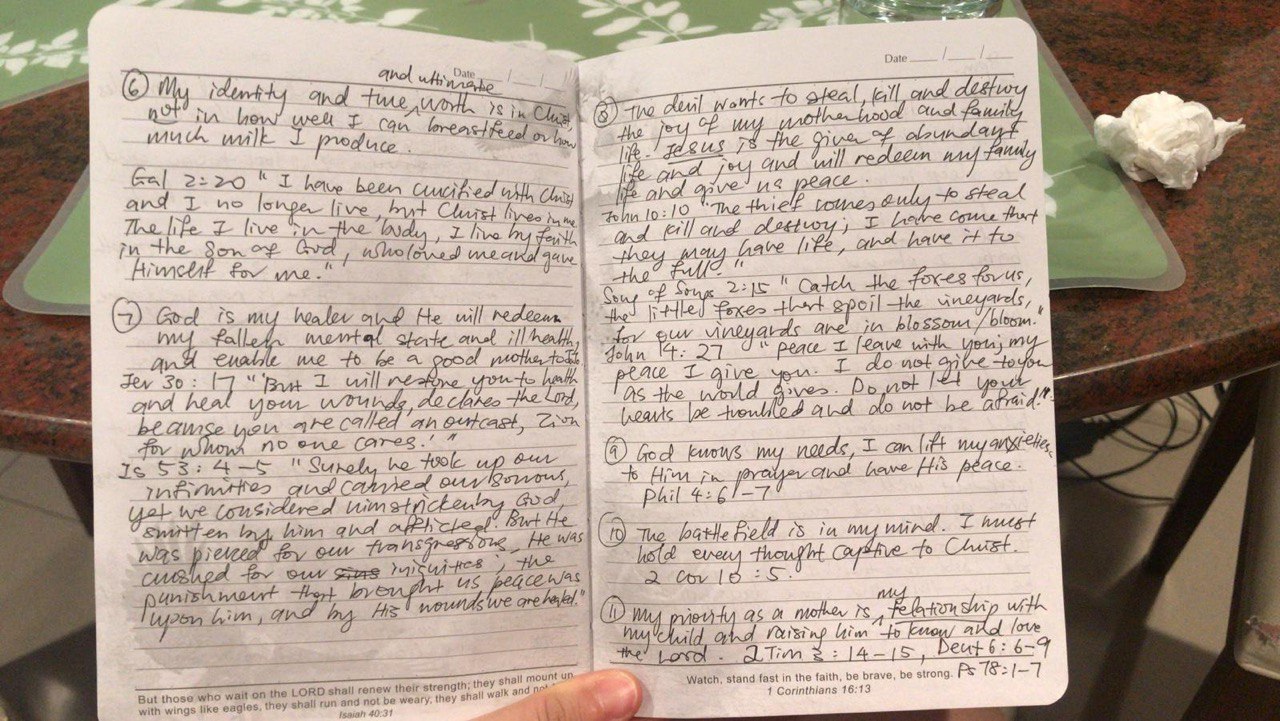
Having a habit of journalling was vital for Ethel: She would pull out verses from Scripture and write down reminders of who she is in God’s eyes.
Admitting that at times it was difficult to reconcile the truths about God with her suffering, she said: “There were so many moments of feeling ‘betrayed’ by God.
“But – I think this is God’s grace and the Holy Spirit’s work – I just knew that I had to keep clinging on to Him. Because if I don’t have God, what else do I have?”
Singling out one of her favourite verses (2 Corinthians 12:9), it was in this tough season when Ethel saw how God’s grace was indeed sufficient.
“There were some days I had to be (living) not even hour by hour or minute by minute, but moment by moment,” she confessed.
“I had to break my day down to such microscopic moments. If I didn’t, my anxiety would spiral like crazy.
“Then one day passes, two days passes, one week passes and I realise, ‘Wow, He did sustain me. I’m still here; I’m still functioning.'”
“When you go through really hard times, you have to test and prove what you believe in.”
If there was one big lesson in all of this, Ethel said it was how it taught her to declare that God is good regardless of her circumstances.
“He is always good and He loves me – these two things will never change even in the midst of suffering and darkness.”
“That’s a huge growth point for me,” she added, elaborating that she had always associated God’s goodness and love with the good things He has given her.
“I had to learn how to separate God’s love and God’s goodness – these unshakeable truths – from ‘my life will be smooth-sailing.'”
“It’s only when you go through really hard times that you have to test and prove what you believe in.”
“I’m just a channel”
Another thing she has learnt is what it means to share in not only the sufferings of Christ, but also fellow sufferers.
Pointing out how her illness has also opened up opportunities for her to minister to others, one of the ways that Ethel has been doing this is through her music.
Surprised when the first few words of her new song “Pills” came to her, she said: “Even though I knew I had been carrying the postpartum experience with me, I didn’t think that I was going to write a song about it. It was not intentional.
“But when more and more lyrics started coming, then I felt, ‘Okay, I guess God is giving me this song to help me process what I’ve been going through for the past two years.'”
As the lyrics and melody started to form, Ethel recorded a rough demo and set it aside. It was only when more songs started coming to her that she discovered she was on the cusp of a new beginning.
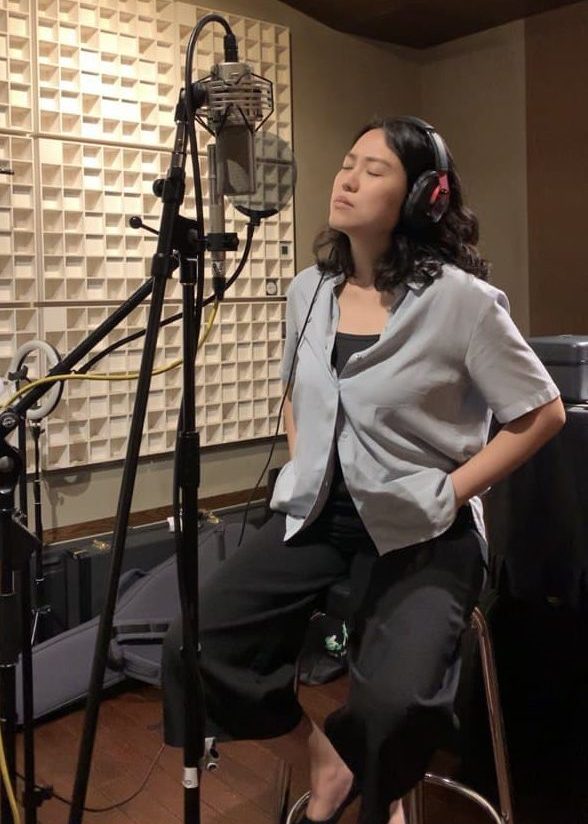
While Ethel had no deadline for a second album since her first was released in 2017, she realised that it was time to work on it when “Pills” and other songs were birthed.
“That’s when I realised that, ‘Hey, I think I really am recovering because the creativity is returning. That was a sign to me that I was getting much better,” said Ethel.
“Pills” is her first single since 2018, while the second single from her upcoming EP is scheduled to drop in October.
Revealing that the rest of her album will be released over the next few months, Ethel said: “I really feel like I’m given the songs, and I’m just a vehicle or channel through which the songs come out to the world.
“I rarely think, ‘I want to write a song about that topic.’ Usually it will just come. I know it comes to me because it’s been something that I’ve been carrying around for a long time – internally it’s like something that needs to come out.
“At the same time, I do feel that there’s definitely a divine element – the words and music are gifted to me by God.”

A publicity photo for “Pills”, a song that is meant to offer both comfort and hope to its listeners. Photo credit: framethefolks
So what does Ethel think that God wants her to communicate through “Pills”?
“The song is meant to hold space for people who were struggling the way that I was,” she clarified. “Another function of the song was to encourage people to get help.”
On writing a song that allows others to voice out their grief, Ethel said: “It’s a lament, like lament songs in the Bible. And grieving is not sinful. God Himself gives us the space to grieve.”
Since “Pills” was released in July, she is heartened that many mothers have told her that the lyrics resonate with them.
“They can identify with it and they don’t feel so alone,” said Ethel.
These range from mothers who have experienced breakthrough to mothers who are still struggling.
“They have reached out to me to say, ‘Thank you for validating my experience. I don’t have to feel bad for taking meds.'”

Besides sharing snippets of her journey during her recent performance, a resource table was set up at the front of house to spotlight avenues for help. Photo credit: Poh Yu Khing
At her solo concert in August, Ethel also took the chance to raise awareness of postpartum mental health.
Brochures were supplied by KK Women’s and Children’s Hospital, while QR codes with articles and help links were provided by Singapore General Hospital.
“I knew that a lot of people coming to watch the show are in the same stage of life as I am – they have young children or are expectant mothers themselves,” she explained.
“They might be having these feelings and maybe they’ve not been able to get help yet.”
Amazed at how God is using her experience to encourage others, Ethel shared that there have also been other opportunities to connect with new mums, whether it is to offer emotional support or practical advice.
“I never really thought of this as a ministry, but I guess it is,” she mused.
“God is providing these connections for me. If God opens these doors, I’m happy to walk through them, and to see how I can serve Him and other mums in this way.”
RELATED STORIES:
“My pain is deeply known by God”: 4 lessons I learnt through my struggle with anxiety
We are an independent, non-profit organisation that relies on the generosity of our readers, such as yourself, to continue serving the kingdom. Every dollar donated goes directly back into our editorial coverage.
Would you consider partnering with us in our kingdom work by supporting us financially, either as a one-off donation, or a recurring pledge?
Support Salt&Light